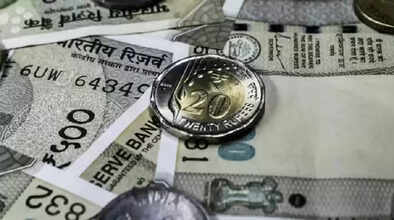Cash Transaction Rule: How much cash can be withdrawn in a day? Learn what the Income Tax rules say.
Cash Transaction Rule: Most people are unaware of the legal limit for cash transactions in a day. So, let's find out what this limit is.

Cash Transaction Rule: In the era of promoting digital payments and online banking, the Income Tax Department has become increasingly strict regarding large cash transactions. Whether you're withdrawing cash for personal use or business purposes, it's crucial to understand the legal limit for cash transactions in a day. Many people may not be aware that exceeding a certain limit not only incurs a penalty but could also result in an income tax notice. So, let's find out how much cash can be legally transacted in a day under the Income Tax Act.
Section 269 ST
Section 269 ST of the Income Tax Act prohibits any person from receiving cash of ₹2 lakh or more in a single day from one or more individuals. This restriction is independent of whether the transaction is personal or business. For example, if you sell a car and receive ₹2.5 lakh in cash, it is legally against the Income Tax Act.
Penalties for Violating the Rule
If you accept cash exceeding ₹2 lakh, the Income Tax Department can impose a penalty equal to the total cash received. For example, if you accept ₹5 lakh in cash for a property or business transaction, the penalty can be up to the full ₹5 lakh. This penalty is imposed under Section 271DA, and the person receiving the cash is held accountable.
Why is this rule in place?
The ₹2 lakh cash transaction limit was imposed to curb black money and tax evasion in the economy. The government's goal is to ensure that all large transactions, whether through bank transfers, checks, or digital means, are transparent and traceable. Even a personal transaction, such as giving money to a friend or relative, can be investigated if it exceeds ₹2 lakh.
Income Tax Department Monitoring System
The Income Tax Department uses AI-powered data analysis to monitor unusual or high-value cash deposits and withdrawals. Alerts can be issued for cash deposits or withdrawals exceeding ₹10 lakh in a savings account or ₹50 lakh in a current account in a financial year. Furthermore, many cash transactions under ₹2 lakh can also be identified as suspicious to avoid detection.

